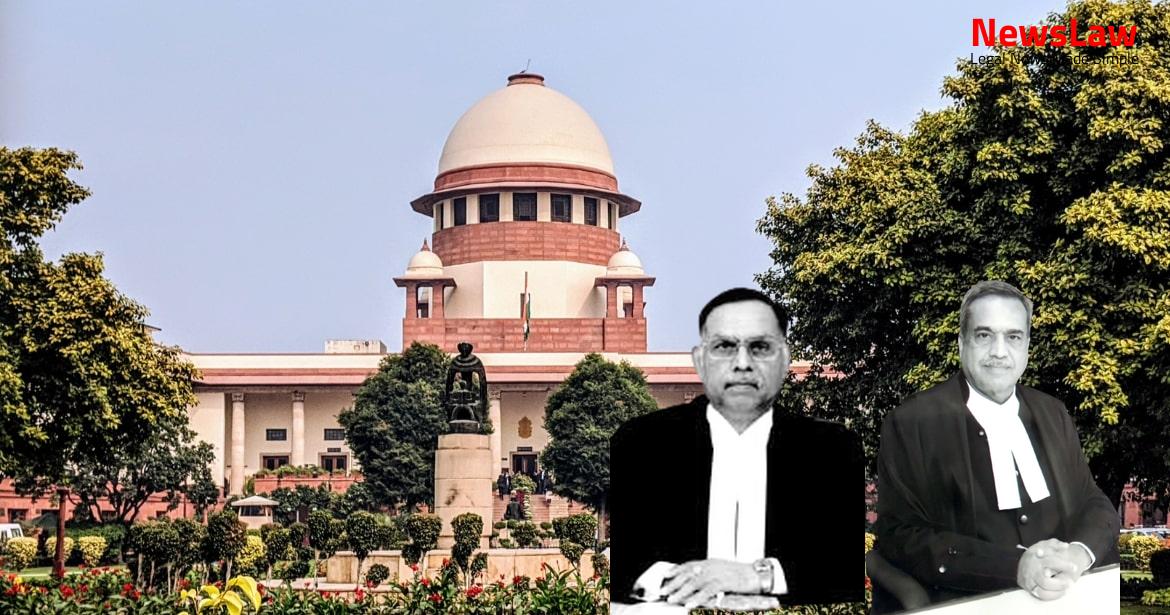Explore the in-depth legal analysis of international commercial arbitration jurisdiction in the context of a recent case. The court’s examination of Section 2(1)(f) criteria and its application in determining jurisdiction sets a crucial precedent for cross-border disputes. Uncover key insights into the complexities of international arbitration law and the implications of different legal interpretations on dispute resolution. Stay informed on the nuances of jurisdictional considerations in global business transactions.
Facts
- The petitioners noted they could not access their ABO account in April 2019 without prior notice.
- Their account was reclassified as a ‘PC’ account due to not meeting the purchase criteria.
- The petitioners engaged with their Major Accounts Manager for clarification.
- The respondent issued a Code of Ethics and Rules of Conduct in 2015.
- The petitioners appealed to Mr. Jon Sherk for redressal and review in January 2020.
- Petitioners attempted to resolve disputes amicably with the respondent from April to December 2019.
- The renewal process for ADSs became automatic from 2015 without payment.
- The respondents rejected the petitioners’ request for restoration of their ADS account on June 26, 2020.
Also Read: Limitation Period in Arbitration Disputes: Court’s Legal Analysis
Arguments
- The main plea of the appellant was that the dispute does not fall under international commercial arbitration, as the central management of the association is in India.
- The argument that the case should be covered by Section 2(1)(f)(i) of the Act of 1996 due to the respondents being individuals and habitual residents of the USA was refuted.
- The respondent failed to issue any follow-up reply after the initial response to the petition.
- The judgment in Larsen & Toubro Ltd. v. MMRDA was cited, emphasizing the location of the office of an unincorporated entity as a factor in determining international commercial arbitration.
- Although a sole proprietorship has no separate legal identity, in this case, the husband and wife operated as a single Distributorship as per the Code of Ethics and Rules of Conduct.
- The Code recognizes and contemplates that a husband and wife shall operate their Distributorship as a single entity.
- Ms. Manmeet Arora, representing the respondents, argued that the respondents should be classified under ‘association or body of individuals’ under Section 2(1)(f)(iii) instead of Section 2(1)(f)(i).
- The main argument revolves around whether the requirements of Section 2(1)(f)(i) have been met based on documentary evidence.
- It is emphasized that under Section 2(1)(f), ‘at least one of the parties’ must fall under sub-clauses (i) to (iv) of Section 2(1)(f).
- The document ‘Code of Ethics of Amway Direct Sellers’ is referred to in the argument as a key piece of evidence.
- The counsel argues that the case should be governed by Section 2(1)(f)(i) and not Section 2(1)(f)(iii) as contended by the appellant.
- When an individual party to an arbitration agreement is a national or habitually resident in a country other than India, it is deemed to fall under Section 2(1)(f)(i).
- Since the respondents in this case are individuals who are nationals of and habitually resident in the USA, it is asserted that they fall under Section 2(1)(f)(i).
- The conclusion is that the petition filed under Section 11(6) should be to the Supreme Court, not the High Court, as per jurisdictional requirements.
Also Read: Interpretation of Section 43B: Debentures vs. Interest Payment
Analysis
- Section 2(1)(f) states that if a transaction involves a foreign national, a person habitually residing in a country other than India, a body corporate incorporated outside India, or the government of a foreign country, the arbitration is considered international.
- The Delhi High Court did not have jurisdiction to appoint an arbitrator in this case.
- Ms. Arora requested the Court to appoint an arbitrator under Article 142 of the Constitution.
- The judgment discussed the application of the Code of Ethics and the Legal Entity Authorization Form in the context of a distributorship agreement between Amway and the respondents.
- It highlighted the restrictions on exporting Amway products and the limitations on territorial operations for Direct Sellers.
- The case drew comparisons with a previous judgment involving Larsen & Toubro, emphasizing the distinction between a consortium and a partnership in the context of Indian arbitration law.
- The judgment specified the requirements for operating an Amway distributorship in India, including the sole purpose of the entity, compliance with rules of conduct, and territorial limitations.
- It pointed out the implications of the legal entity authorization form in determining the business structure and operations under the distributorship agreement.
- The ruling clarified the responsibilities of sole proprietors in maintaining compliance with laws and regulations, including foreign exchange laws.
- It discussed the role of the Supervisory Board in arbitral proceedings and highlighted the binding nature of arbitration decisions under Indian law.
- The analysis underscored the importance of ensuring adherence to the rules of conduct and specified actions that could lead to termination of the distributorship agreement.
- Furthermore, it addressed the significance of dealing with the respondent as a Consortium rather than individual entities, based on the nature of the distributorship agreement.
- The plea citing the judgment of TDM Infrastructure (P) Ltd. v. UE Development India (P) Ltd. was not found applicable in the present case.
- An order by the High Court of Bombay in L&T Ltd. v. MMRDA case highlighted that claims must be filed in the name of the Consortium and not separately.
- The reference to Section 2(1)(f)(iii) regarding unincorporated ‘association’ was deemed more fitting than Section 2(1)(f)(ii) in the case discussed.
- A previous case, Ashok Transport Agency v. Awadhesh Kumar, emphasized that a sole proprietary concern is equated with the proprietor of the business.
- The final judgment in the case concluded that the consortium cannot claim independent entity status while dealing with MMRDA.
- Provisions of Rule 4 Order XXX CPC are unable to be extended to the case at hand.
- The argument that there is no international flavor to the transaction between the parties lacks merit.
Also Read: Judicial Scrutiny of Arbitrary Taxation Statutes
Decision
- The parties must attempt to settle any dispute arising from the Direct Seller Contract through mutual discussions within 30 days.
- The suggestion to follow Section 11(6) read with Section 11(9) of the Arbitration Act cannot be accepted.
- The appeal has been allowed and the judgment under appeal has been set aside.
Case Title: AMWAY INDIA ENTERPRISES PVT. LTD. Vs. RAVINDRANATH RAO SINDHIA (2021 INSC 152)
Case Number: C.A. No.-000810-000810 / 2021



